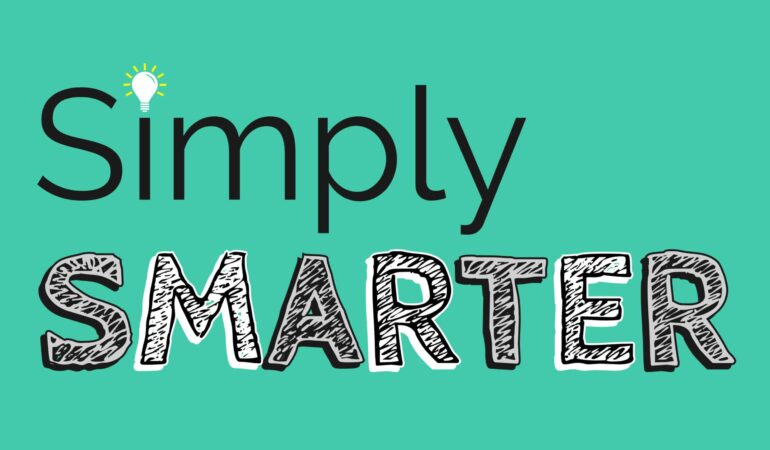Does a High ACT Score = Freshman Year Success?
Standardized testing, such as the ACT, is a major factor in the college planning process. Most colleges require either an ACT or SAT before considering admission to their schools. Does a higher ACT score mean you’ll have more success your first year in college?
A higher ACT score may equal a more selective school, however there are more items to put into this basket such as your Grade Point Average (GPA), extracurricular activities, how stellar your college essay is, if you chose to volunteer throughout the past four years, if you took AP classes and how well you did in those classes, etc. A fantastic score on the ACT could make you a more impressive candidate for scholarships, especially those based on merit and academic achievements, but your score is one out of a number of items that colleges look at.
If you are scoring a composite score of 30 or higher, you’re already in the top 2% of high school graduates. The chances of getting selected into a top-tier school will be higher with greater ACT scores. Is a 4.0 GPA better or 35 composite ACT score better? Colleges look at both. Your GPA is more reflective on how hard you’ve worked over your high school career. Your ACT score can be a good indicator of how much you’ve studied for the ACT in general. Some students spend months studying for the ACT. Other students totally wing it (which we don’t recommend).
How does a high ACT score affect my freshman year of college?
Once you’ve selected your school and been accepted, what role does the ACT play in your first year of college? Most likely, if you received a high ACT score, you’ve taken challenging, higher-level courses in high school which is associated with increases in students’ chances of success in first-year courses. You’re ready to tackle college courses because you’ve taken tough classes in high school. If you have a high GPA, that means you’ve had success in the AP and higher level classes.
One of the biggest challenges that lies ahead of you is translating those stellar grades from high school to college. It’s easy to lose focus in college, since you’ve already been accepted, however, if you’ve received an academic scholarship there is far more to lose than you may imagine. Now is the time to focus on the same good habits you’ve created in high school such as attending class, completing your homework on time, attending study hall or office hours, and asking for help when you need help.
Conclusion:
Yes, a higher ACT score can be an indicator into how ready you are for college courses. However, just as colleges factor in more than your ACT score, freshman year success is more than just attending classes (there can be a lot of distractions). One surefire way to have success your first year of college is to stay focused on your schoolwork, which will ultimately translate into good grades and securing your academic scholarship for your second year in college.
Choosing the Right College for You
With so many different choices, the decision of where to spend the next phase of your life can be a little overwhelming. Create a list of criteria and rank them by importance; use this to guide your search and narrow down the school that is right for you. Don’t know where to start? Here are some things to consider to help whittle down the lists of colleges.
-
What is Important For YOU
Make a list of “Musts” that a college has to have for you. Consider what you would like a school to offer and what you couldn’t care less about. Maybe you love marching band and continuing that passion is important to you. Your passions are a part of you and they should follow you throughout your college experience.
-
Identify Major Options
Not everyone enters college knowing exactly what they want their major to be. But before you start, you should always have a good idea of your interests and a few majors that appeal to you. Picking a school that only has one major that interests you limits your possibilities to change your mind if you find that it isn’t what you want to do for the rest of your life. Too many people have entered a major thinking they love a subject only to find that it is more of a hobby than a career for them.
-
Costs
Finances can be a huge factor in choosing a college that is right for you, but not all costs are clearly posted. Many schools only post their rates per credit hour; however, sometimes additional equipment fees can be tacked on to your bill unexpectedly. Figure out what you can afford before you make any decisions. Look for scholarship opportunities both within the school and out of school for the best chance to be able to afford your dream school.
-
School Rankings
All schools are not created equal. Every college has their different strengths and weaknesses. Researching national rankings can give you a better idea if the school’s focus and direction line up with your own.
-
Class Quality and Size
The size of a school can factor into the quality of education available to you. You have to know what you are comfortable with regarding class size. If you attend a bigger college, classes will also be large. Classes with a student to teacher ratio of 300 to one are common with larger schools. Know your learning style and what will be the best environment for you.
-
Past and Current Students’ Opinions
Listen to what others have to say. Alumni and current students will give you better insight into the day to day life than any admissions representative. You never know what useful things you can learn.
-
Campus Visit
This cannot be stressed enough. See the campus for yourself: pictures and videos can only show so much. Use the opportunity to talk to students, see different buildings, and get a general feel for the campus. Is the campus small enough to walk between classes? Things like very limited parking or how well the facilities and dorms are maintained can tip the balance between schools.
-
Housing Options
Most college students will spend 2-6 years at college. Of course, you will need a place to live, and chances are you will be moving multiple times throughout your time there. Don’t just assume you will be living in the dorms your whole stay. Check out the surrounding area. What are the options like? How far are they from campus? Are they affordable?
-
Work Options
Everyone can use a little spending money, and others will need some additional income to pay for the cost of tuition. Look at local businesses and see what kind of opportunities are available and how many are open to students. Is there Work Study available on campus?
-
Gut Feeling
Trust your instincts. Some places will just give you a bad vibe. Try to identify what these things are, but even if you can’t do that, do not just ignore it. Other times you will step foot on campus and feel like you just came home. Gut feelings can go both ways; give them a voice in your decision.
Whatever school you choose should fit the college experience you are looking for in a school. Don’t let tradition or peer pressure put you somewhere you don’t belong. Trust and know yourself. You are going to college for you, so you should feel great about whatever decision you make.
Planning for College in the Summer
Most students look forward to summer simply because there’s no homework, no tests to study for, and it’s sunny and nice out! Whatever your reason is to love summer, there may be a gently nagging in the back of your mind that you have a ton left to do to get ready for college. Planning for college in the summer is a great way to get ahead of the game.
Get Smarter Prep offers several different options to help students prepare for college including a Career/Assessment test, how to build a College List, and Essay Writing Courses.
Career/Major Assessment Test
Start with a Career/Major Assessment test. This test allows you to see what your strengths are, coupled with what you enjoy doing and provides a number of careers to guide you in the right direction. Don’t worry, taking this type of test in the summer isn’t something you have to necessarily prepare for. The test is a comprehensive online assessment that will gauge your learning style, interests, personality, and career focus. Our counselors will go over the results of the assessment and discuss possibilities and paths through your feedback and conversation – discussing careers, as well as possible majors.
Build a College List
If you already have a good idea of what you want study in college and/or what your major will be, but haven’t nailed down a college yet, Get Smarter Prep will help you build a college list that matches your values and goals. If your simply not sure where in the world you would like to college, we will guide you through the process and figure it out together. We can customize ACT/SAT recommendations to ensure the college list is right for you.
College Essay Writing Course
Maybe you already know where you want to attend college, but haven’t even thought about college essays? Not to worry, we offer college essay writing courses in June and July to help you write your best college essays and set you apart from the pack. Our college essay writing experts will help you craft your best essays for your college set. We go above and beyond to ensure you don’t write an essay that prevents you from becoming accepted into your school of choice.
Wherever you are in the college planning process, we can help. It’s not too late or too early to start planning for college in the summer. Contact Get Smarter Prep to get a jump start on your summer plans!
Realistic Expectations
When you think about the ACT, what do you imagine? Do you picture a calm setting, pencil in hand, calculator charged, and the feel of confidence rushing over you? Or, do you picture standing in line, calculator out of batteries, rumbling stomach, and the weariness of an impending test? Both scenarios could turn out to be real life for many students. The question is, how do you prepare for both scenarios or a combination of both scenarios? Do you have realistic expectations for your ACT test?
Each school district has a number of Test Center Locations that offer ACT testing throughout the year, but not all test centers are created equal. You may get a proctor who is running late, or has gotten sick. There may be a student who tries to enter the test location after the test has begun or a student whose watch starts beeping in the middle of the Math section. There may be a dog barking down the street or the classroom may be too hot. Regardless of the circumstance, how prepared are you for any of these situations?
Setting realistic expectations
To prepare yourself, eliminate what you can control. Get a good night’s rest, eat a healthy breakfast, charge your calculator the night before, make sure you have your ACT ticket with you, and last but definitely not least, be prepared for the test. Walk into the test with confidence!
Get Smarter Prep has a number of different courses ranging from One-On-One Private Tutoring, to Semi-Private Tutoring, to Group classes depending on the students’ scoring range. Each class or tutorial will equip you with more knowledge, insight, and confidence to walk into the ACT knowing what kind of questions will be on each section of the test, strategies to approach each section, and time management skills to get through each section of the ACT.
Study hard, prepare the best you can, and be confident in the skills you’ve learned for this test. The more you prepare for the test, the more confident you will be. However, at the end of the day, the ACT is one test. I guarantee no one will remember their ACT score in 5 years, so don’t put added pressure on yourself! Take a deep breath, walk into the test with your head held high, and dominate the ACT!






